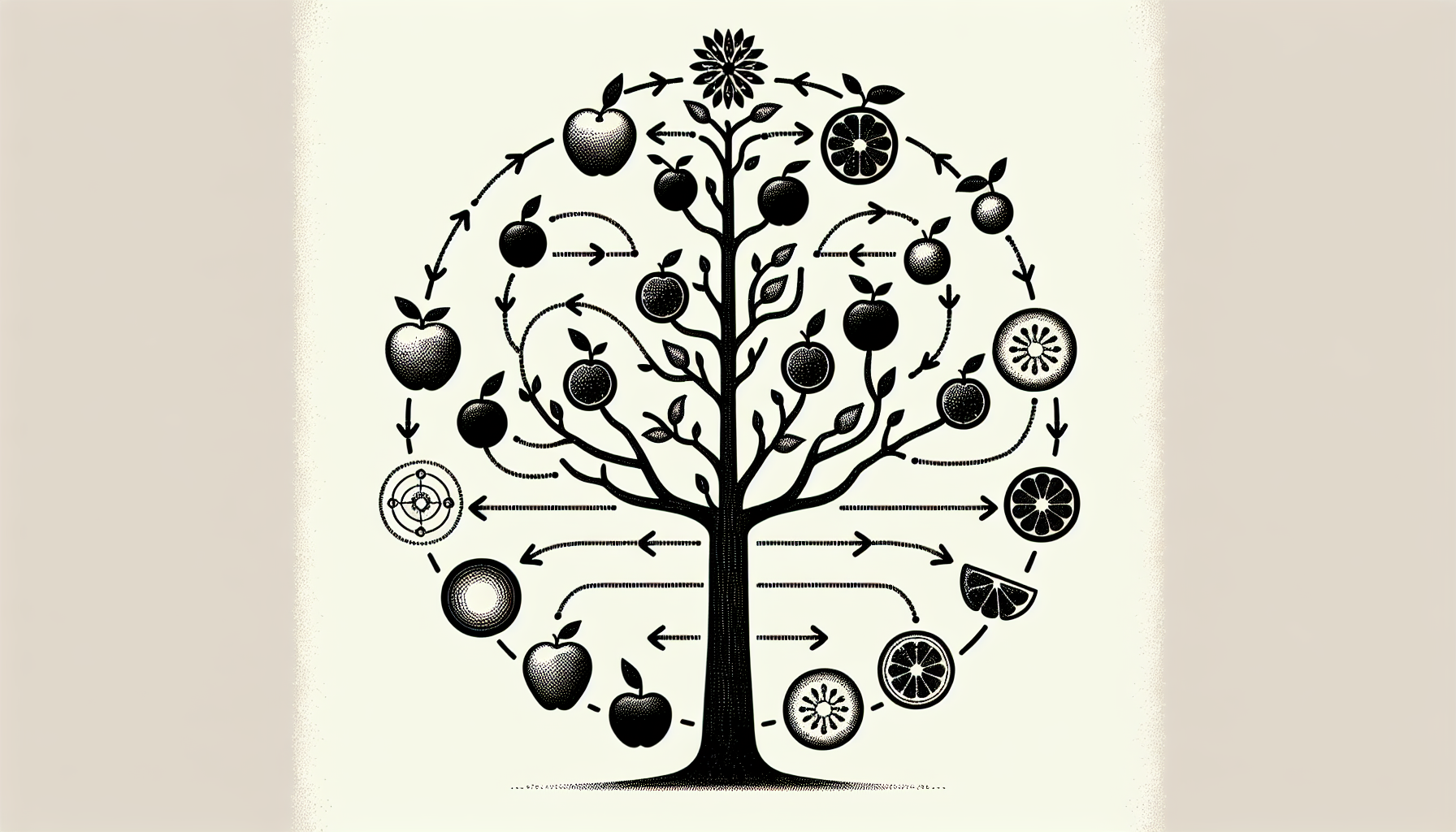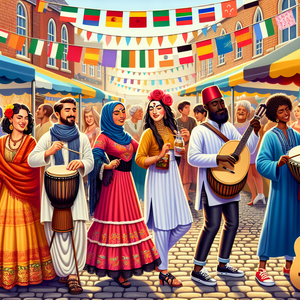Kendrick Lamar and the Art of Storytelling

From his debut album, *Section.80*, to the Pulitzer Prize-winning *DAMN.*, Lamar has consistently demonstrated a profound ability to tell stories that are both personal and universal. In *good kid, m.A.A.d city*, Lamar invites listeners on a cinematic journey through his adolescence in Compton, California. The album unfolds like a film, characterized by vivid characters and scenes that illustrate the challenges he faced growing up. Tracks such as "The Art of Peer Pressure" and "m.A.A.d city" serve as powerful vignettes exploring themes of violence, identity, and the search for belonging. In "The Art of Peer Pressure," Lamar narrates a day in the life of a young man caught in the throes of peer influence, showcasing the tension between personal morality and the desire for acceptance. Such storytelling not only entertains but also serves as a mirror reflecting the struggles faced by many youth in similar environments.
Characters and Symbolism
One of the defining features of Kendrick Lamar's storytelling is his adept use of characters and symbolism. In *good kid, m.A.A.d city*, he introduces various figures from his life—friends, family, and even adversaries—who contribute depth to his narratives. Each character is purposefully crafted, adding layers to the overarching theme of his journey toward self-realization and understanding. In "Sing About Me, I'm Dying of Thirst," Lamar portrays the voices of two individuals: one a friend impacted by violence, and the other a woman mourning her lost brother. Through these characters, he explores themes of mortality, legacy, and the desire for remembrance. The storytelling is raw and emotional, revealing the stark realities of life in urban environments while also highlighting the shared humanity that connects us all. This duality is a hallmark of Lamar’s work; he manages to balance personal storytelling with universal truths, making his narratives accessible to a wide audience.
The Power of Personal Reflection
Lamar’s storytelling is further enriched by his willingness to engage in personal reflection. In *DAMN.*, the track "FEAR." serves as a poignant exploration of his vulnerabilities and insecurities. By narrating moments of fear—fear of losing his success, fear of the consequences of fame—Lamar creates an intimate connection with his audience, allowing them to see the man behind the music. This level of honesty sets him apart as a storyteller; he is unafraid to share his flaws and struggles, making his art relatable and impactful. In "FEAR.," Lamar's internal monologue reveals the weight of expectation and the anxiety that accompanies fame. This transparency allows listeners to identify with his struggles, transforming his personal battles into collective experiences. His ability to articulate such fears not only humanizes him but also fosters a sense of community among listeners who may grapple with similar emotions.
Kendrick Lamar has redefined the boundaries of storytelling within hip-hop, elevating it to an art form that is both profound and poignant. His ability to weave intricate narratives that address personal and societal issues has established him as a voice for his generation. Through his albums, Lamar not only entertains but also challenges listeners to reflect on their own experiences and the world around them. As he continues to evolve as an artist, his legacy as a master storyteller will undoubtedly influence future generations, inspiring them to use their voices to share their own stories with authenticity and courage. In an era where storytelling is more crucial than ever, Kendrick Lamar stands as a testament to the power of narrative in shaping culture and consciousness. His work invites us all to consider the stories we tell and the impact they have on our understanding of ourselves and each other, making Kendrick Lamar not just a rapper, but a vital cultural figure whose narratives will resonate for years to come.
Music Producer
Major record labels (e.g., Universal Music Group, Sony Music Entertainment) and independent studios.
Responsibilities
Collaborate with artists to develop their sound and vision, transforming raw ideas into polished tracks.
Oversee all aspects of recording sessions, including selecting the right equipment, arranging music, and guiding performances.
Manage budgets and timelines for projects, ensuring adherence to production schedules.
Required Skills
Proficiency in digital audio workstations (DAWs) like Pro Tools, Logic Pro, or Ableton Live.
Strong understanding of music theory, composition, and engineering.
Excellent communication and interpersonal skills to work effectively with diverse artists and industry professionals.
Music Journalist
Music publications (e.g., Rolling Stone, Pitchfork) and online platforms (e.g., Billboard, Fader).
Responsibilities
Write engaging articles and reviews about new music releases, artist profiles, and industry trends.
Conduct interviews with musicians and industry figures to gather insights and perspectives for feature stories.
Attend live performances and music festivals to report on trends and emerging artists.
Required Skills
Strong writing and editing skills, with the ability to adapt tone and style for various audiences.
Knowledge of music history and current trends, particularly in hip-hop and popular music.
Ability to work under tight deadlines and manage multiple assignments simultaneously.
Creative Director for Music Branding
Music labels, artist management companies, and advertising agencies specializing in entertainment.
Responsibilities
Develop and execute visual concepts for music campaigns, including album artwork, music videos, and promotional materials.
Collaborate with artists, graphic designers, and marketing teams to ensure a cohesive brand identity.
Lead brainstorming sessions and oversee project timelines from concept to completion.
Required Skills
Strong understanding of graphic design principles and proficiency in design software (e.g., Adobe Creative Suite).
Experience in brand strategy and marketing within the music industry.
Excellent leadership and project management skills.
Lyricist/Songwriter
Music publishers, recording artists, and music production companies.
Responsibilities
Create compelling lyrics that resonate with audiences, often collaborating with composers and producers to blend melodies and words.
Research themes and concepts to develop original content, drawing inspiration from personal experiences and cultural narratives.
Revise and refine lyrics based on feedback from artists and producers to ensure alignment with the overall musical vision.
Required Skills
Exceptional writing and storytelling abilities, with a keen ear for rhythm and rhyme.
Understanding of various music genres and their lyrical conventions, particularly in hip-hop.
Ability to work collaboratively and adapt to different artistic styles.
Cultural Consultant for Music Projects
Music labels, cultural organizations, and independent artists seeking to enhance their cultural narratives.
Responsibilities
Provide insights and guidance on cultural representation and authenticity in music projects, ensuring respectful and accurate portrayals.
Collaborate with artists and producers to enhance the narrative depth of songs and albums, particularly those addressing social issues.
Conduct research and interviews to inform project development and identify key community voices.
Required Skills
Strong understanding of cultural dynamics and social issues, particularly in relation to the music industry.
Excellent communication skills to effectively convey ideas and collaborate with diverse teams.
Experience in community engagement and advocacy, particularly within the music or arts sectors.


